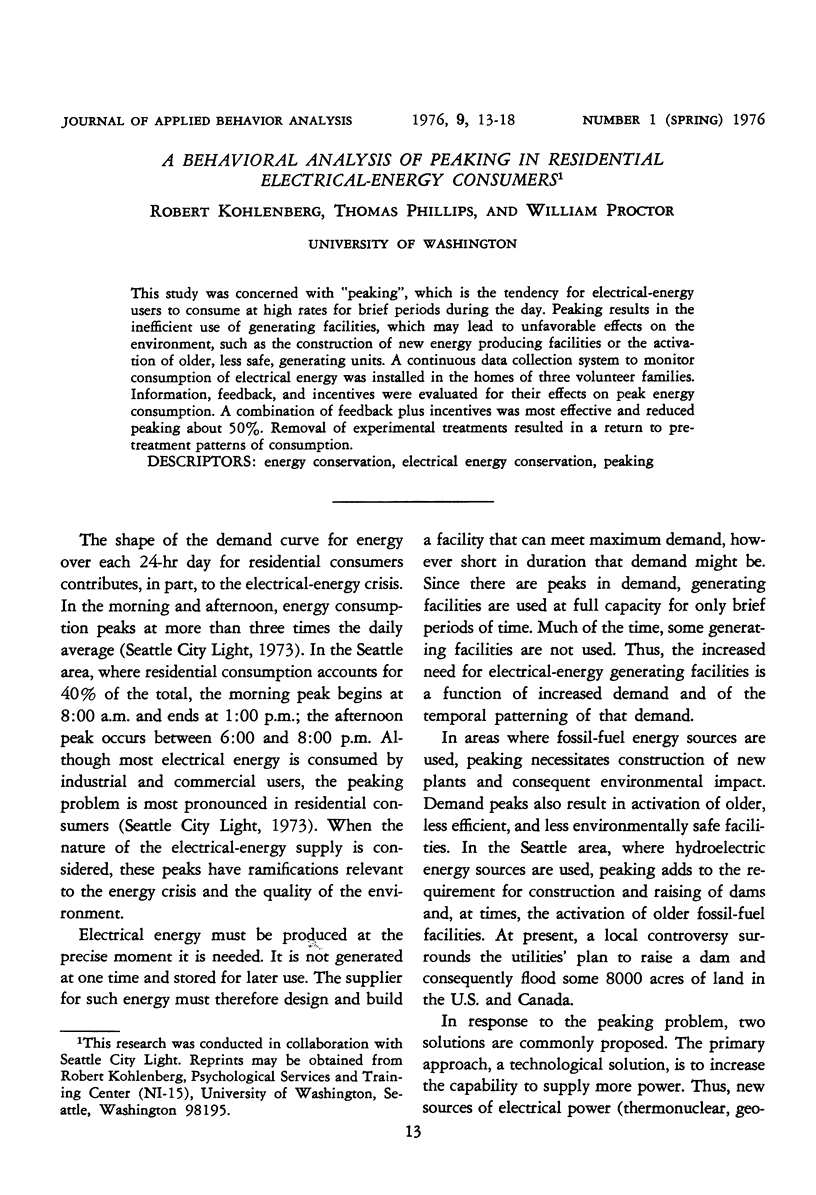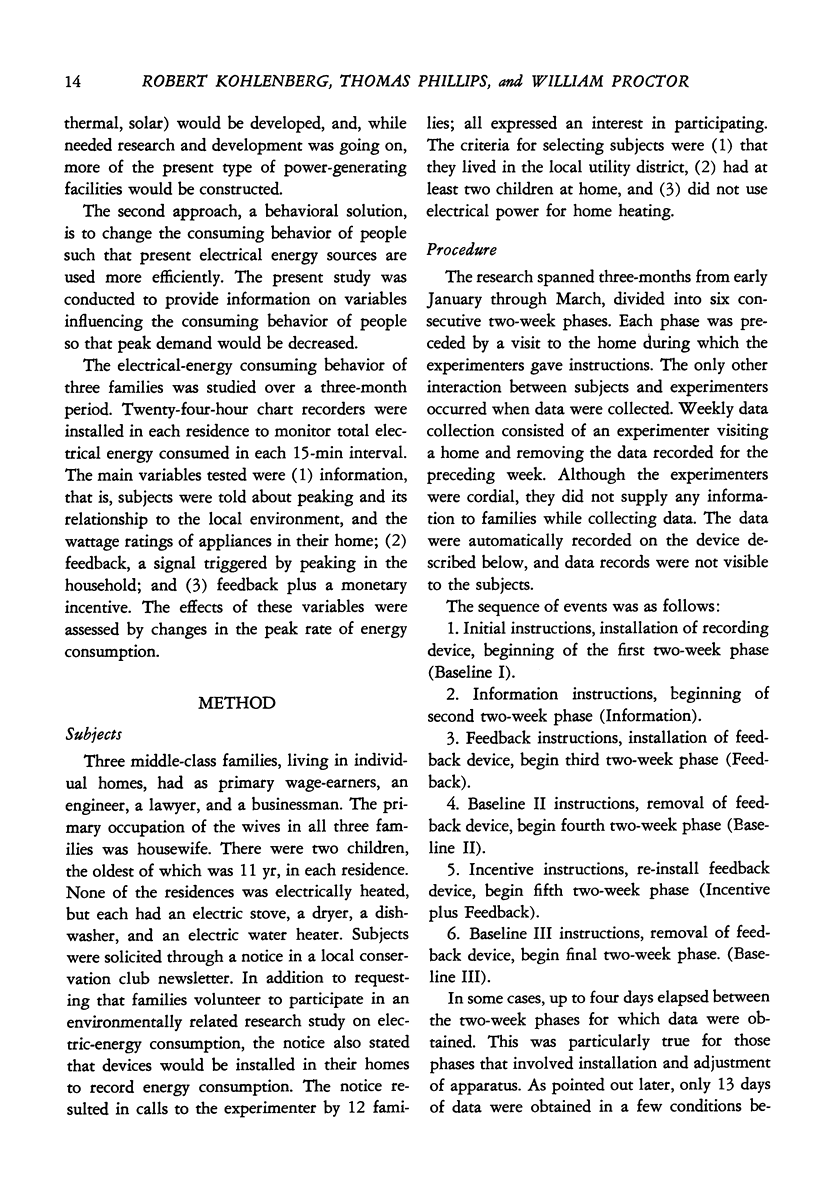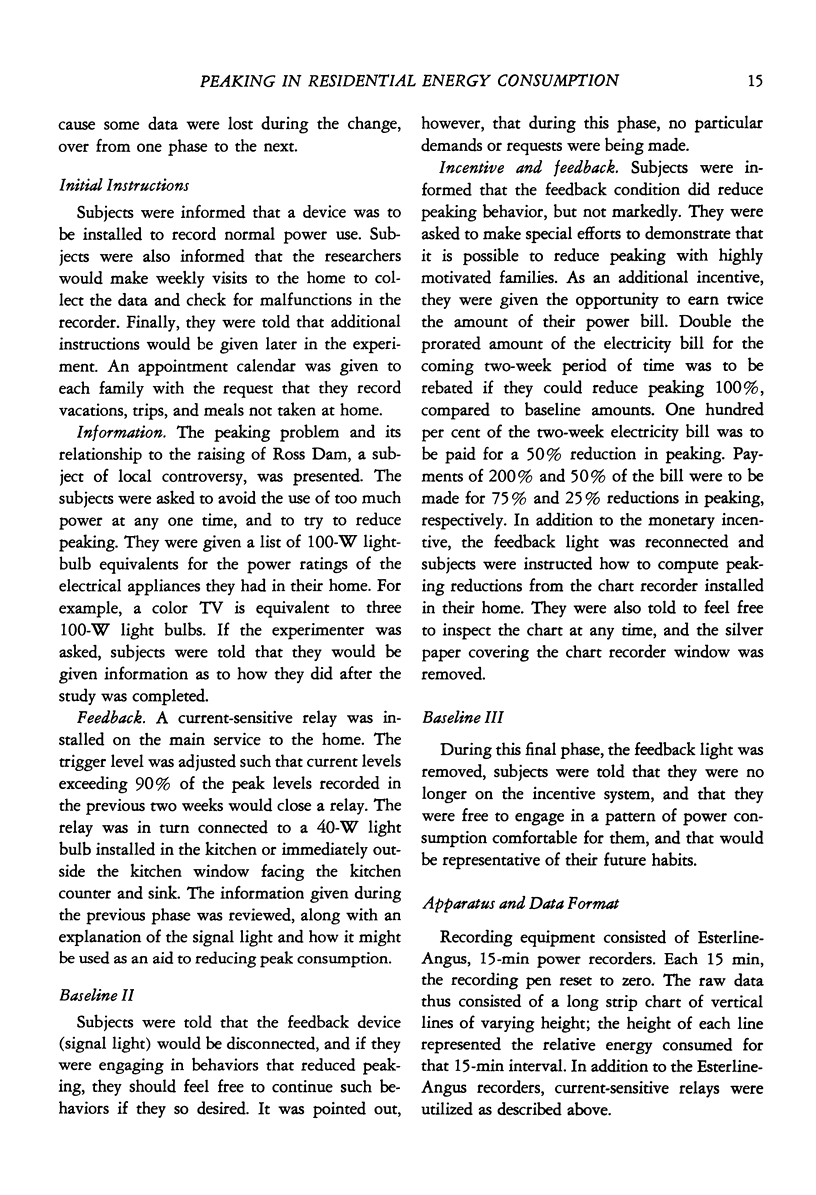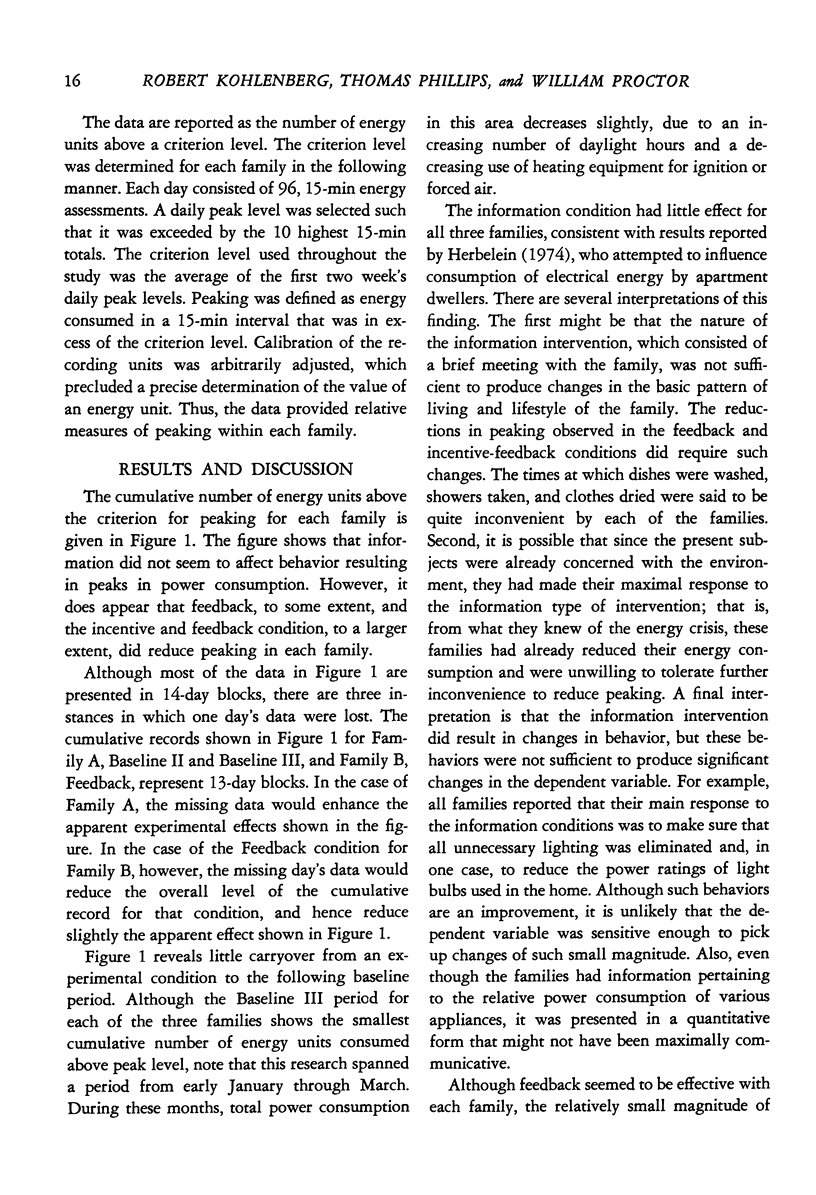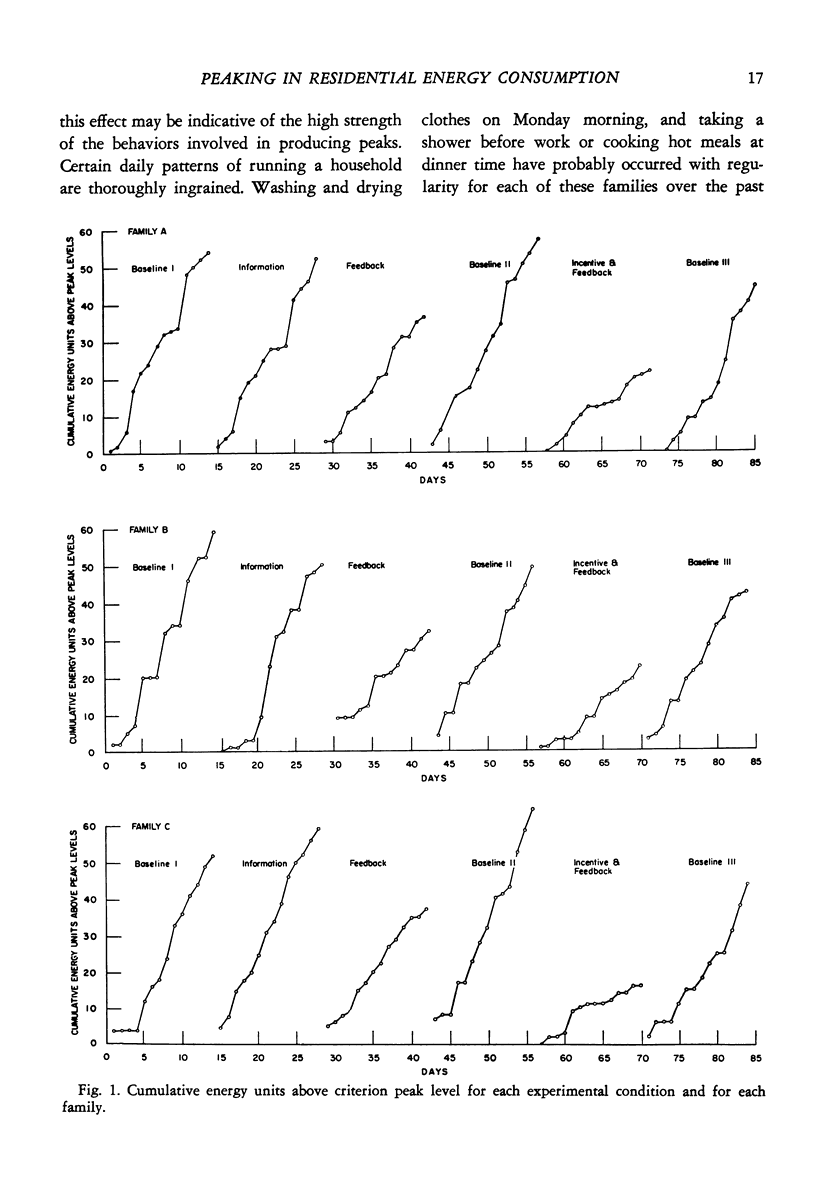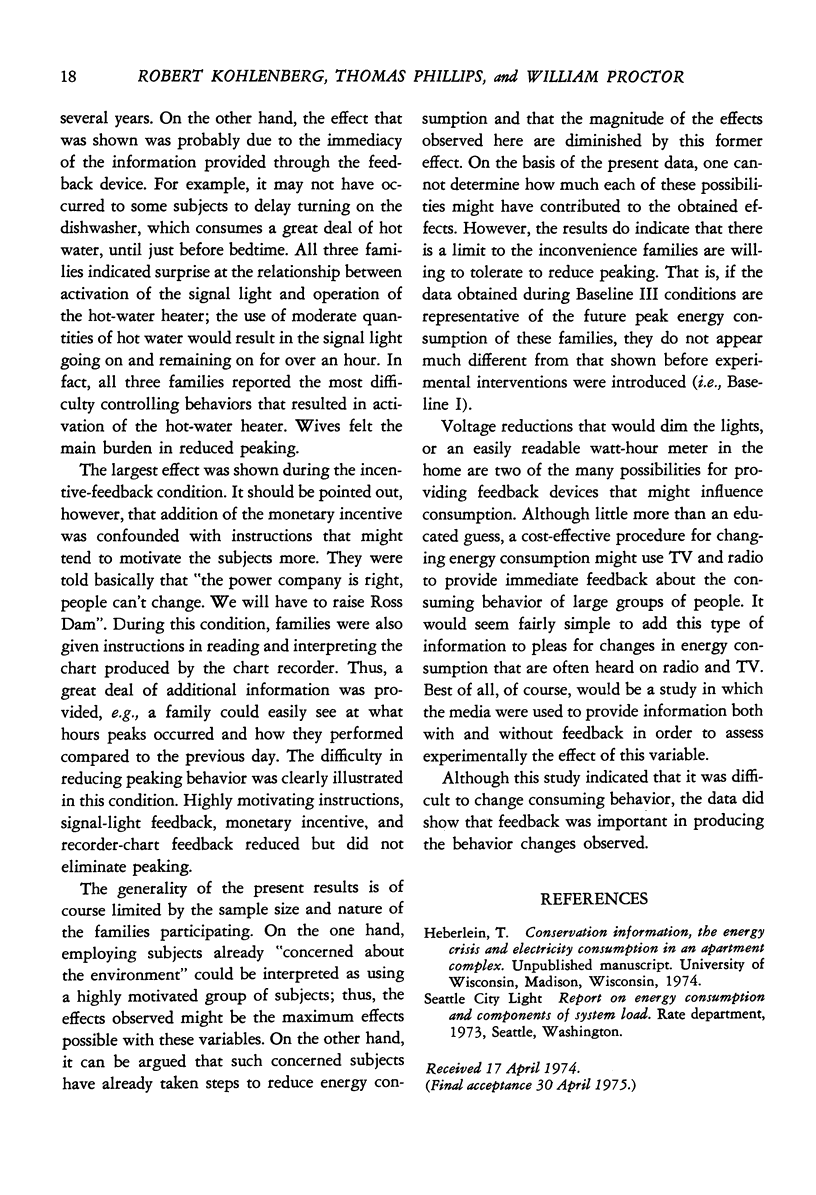Abstract
This study was concerned with “peaking”, which is the tendency for electrical-energy users to consume at high rates for brief periods during the day. Peaking results in the inefficient use of generating facilities, which may lead to unfavorable effects on the environment, such as the construction of new energy producing facilities or the activation of older, less safe, generating units. A continuous data collection system to monitor consumption of electrical energy was installed in the homes of three volunteer families. Information, feedback, and incentives were evaluated for their effects on peak energy consumption. A combination of feedback plus incentives was most effective and reduced peaking about 50%. Removal of experimental treatments resulted in a return to pre-treatment patterns of consumption.
Keywords: energy conservation, electrical energy conservation, peaking
Full text
PDF